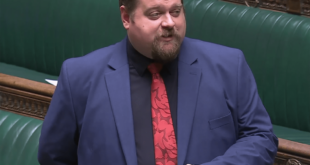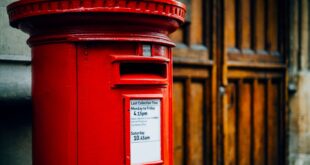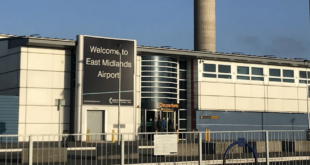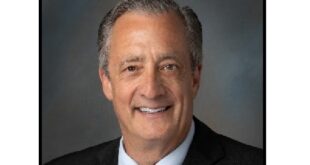Ryan Hart and Luc Bertrand with the President’s Cup at the Royal Montreal Golf Club in Ile-Bizard by Montreal on July 31. The Cup will be hosted in Montreal in 2024.Andrej Ivanov/The Globe and Mail
They’re narrowing the fairways. They’re filling the bunkers with new sand. They’re lengthening some of the holes to make things harder for professionals now smashing drives over 300 yards long. Some 16 years after it last played host to the PGA Tour’s biggest global event, the storied Royal Montreal Golf Club is primping itself again for another global close-up. This one will be even more intense.
The oldest golf club in the country will be the venue in September, 2024, for the next Presidents Cup, a four-day international golf competition that pits a 12-man team of players from the United States against an international team representing the rest of the world minus Europe. The American squad is captained this time by Jim Furyk and the international team is led by Canada’s Mike Weir.
The biennial contest is high-level, match play golf, amped up. Crowds roar. Knowledgeable fans devise their own chants based on popular pop songs. With no purse or prize money, players are trying to win for their team and for sheer glory. The whole thing is raw emotion laid bare in a way it rarely is at a typical PGA Tour event. At the last cup in Charlotte, N.C., youngster Tom Kim urged spectators to get louder while he prepped his tee shot on the opening hole. “I’m super pumped,” he told reporters at the time.
Montreal organizers say they will pull in 30,000 fans a day in person, draw one billion TV viewers, and generate millions of dollars in corporate sponsorship and hospitality revenue, some of which will be given to charity after expenses are paid. They want it to be a can’t-miss event that draws the community together and makes Canada proud. Now, they just have to pull it off.
“There’s nothing cooler for us than to stand there when you open the gates on Saturday morning at 6 a.m. and it’s still dark and you have people running to get to that first tee,” says Ryan Hart, the PGA Tour executive in charge of the organizing the competition. “This could go down as one of the greatest Presidents Cups in history. All we can do is set the stage.”
That Royal Montreal won the rights to stage the Cup isn’t surprising. It has done so before, in 2007. But what makes this edition so particular is the sheer scale of it – more fans, more stands, more interest generally – and the heavy support of Quebec Inc. Rarely has the province’s business elite been so involved in an international sporting event on home soil, lending their expertise and buying the tickets necessary to make it happen.
The background for next year’s sports spectacle is a wide expanse of green as far as the eye can see. Royal Montreal sits on 600 acres of property on Montreal’s Île Bizard, an island off the Montreal island’s northwest tip. And there, the anticipation is building.
Arriving onto the grounds now, you plunge into a vast expanse of oak and maple trees that give way to gently rolling grassland. To the right, players walk the course with electric push carts at the ready as they plot their next shots. The parking lot is checkered with high-end German and Italian automobiles. There’s not a stitch of denim or a swatch of hoodie in sight and why would there be? They’re banned. The club’s golf attire rules also dictate that men’s shorts can be no higher than three inches above the knee cap.
Inside the three-storey clubhouse, the organization’s rich culture is ever-present. Old hickory clubs from the Royal Montreal’s early days share glass cabinet space with feathery balls and trophies. Portraits of past tournament winners and club presidents in their trademark red blazers line the walls. The place has a feeling of an historic inn that’s been given a soft, modern makeover. Tradition reigns unabashed.
The PGA Tour plans to tap into the club’s natural beauty and open spaces to deliver the previously unthinkable. Thirteen of the competition course’s 18 holes will have stands or hospitality suites around them to allow fans to get as close to the action as possible. In all, 500,000 square feet of temporary floor space will be built over the coming months.
That’s a huge change from the the last time Royal Montreal held this event and reflects a change in philosophy toward a more immersive experience, Mr. Hart said. Organizers want to give spectators an opportunity that goes beyond just lining the fairways.
Such catered access doesn’t come cheap. The competition’s crown jewel of hospitality options are the private presidential suites, which feature luxury interiors with outdoor viewing for 70 guests at the 13th or 15th greens. Price for the duration of the event: $375,000. Ten grand buys you four days of hospitality in a shared space, with food and beverages included.
There have been plenty of takers so far. The $195,000 royal suites, which are private chalets for 36 people, are sold out for the 14th hole. It’s on that par-four that American Woody Austin fell into the pond in 2007 as he was trying to salvage a misfired drive, earning him the nickname Aquaman. The 1873 Club package is also sold out. General admission tickets go on sale next year.
“One of the biggest things for us was: Can the market, can the club, help us work together and garner the interest from the business community?” Mr. Hart said. “They’ve proven that yes, they can.”
Luc Bertrand is a big reason why. The veteran Quebec banker, who helms the board of TMX Group Ltd. as chairman, leads the business development committee for Montreal’s Presidents Cup. It was he who, with three other individuals, made the pitch for the club to play host to the competition, a wooing effort that started in 2017. And it’s he who is now working to bring Canada’s corporate community into the tent, literally and figuratively.
Business leaders are responding so far with both their wallets and their time. François Dumontier, promoter of the Formula 1 Canadian Grand Prix, also held in Montreal, has shared his take on client service expectations and language logistics with Mr. Hart’s team in recent months. Geoff Molson of Groupe CH, which owns the Montreal Canadiens, has talked marketing.
Mr. Weir and Mr. Hart have set up a “captain’s council” of Canadian executives who are acting as ambassadors for the event and opening doors in the community to people they feel should be involved. They include Paul Desmarais Jr. of Power Corp., Bank of Montreal chief executive Darryl White, and Canadian National Railway CEO Tracy Robinson.
Mr. Bertrand estimates that holding the Presidents Cup will generate economic benefits worth $77-million to the Montreal area and another $2-million for charity once expenses are paid. Organizers are planning a fan festival downtown with large viewing screens for people who can’t make it to the Royal Montreal grounds, expanding the competition’s reach.
The psychological benefit to Canada’s second-largest city that comes from being the centre of attention is also welcome, Mr. Bertrand said.
“We really need this to reanchor our community and make sure that Montreal and Quebec are again a focal point for a week as an international venue for a top sporting event,” he said, summarizing the bid committee’s view during the pandemic. “That really motivated a lot of us to say, ‘Hey wow, this is our way of responding to a really tough environment.’ ”
As an event that’s “one-and-done,” the biggest challenge for Presidents Cup organizers is coming into a host market, earning the trust of the local community and building the reach needed to carry off a successful event, Mr. Hart said. He said the COVID-19 crisis hampered that process because the face-to-face meetings that typically facilitate those connections didn’t happen. They’ve since caught up.
Still, there are some colossal tests ahead. Topping the list: How do you get 30,000 people, many of whom will be staying downtown, to the Royal Montreal grounds every day in a city with a transportation network that often falls short of world-class standards? Organizers are planning designated lots off Île Bizard where people will park or get dropped off, with shuttle buses to ferry them the rest of the way.
But there’s a potential complication. The lone bridge to the island is under construction with reduced lanes. It’s scheduled to be completed next July, barely two months before the Cup. Will it? Mr. Hart’s team is keeping close tabs on the situation.
“When we came here in 2020, we were made aware that it was happening,” Mr. Hart said. “That makes you nervous. It is the main thoroughfare into this event.”
Organizers are hoping the tournament will be remembered for the sports drama and positive human connections it produces, rather than the traffic nightmares that loom in a worst-case scenario. And if it can inspire a new generation of Canadians to take up the sport, so much the better.
“It’s beyond golf. Golf’s the vehicle for this but ultimately we’re in the entertainment business,” Mr. Hart said of the Presidents Cup’s potential.
“If we looked at success, ultimately, in the end it would be: We welcome people from coast to coast. We’re humbly hosted in Montreal, but this is Canada’s event. And if we walk around on Sunday when all the singles matches are out there and we ask 25 people who’s winning, they don’t know the answer. Because they’re here, they’re having a great time. And they’re supporting a community event, whether they’re a golf fan or they’re not.”
Source link



